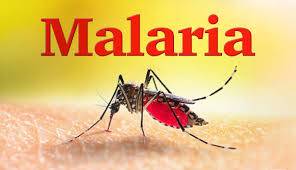Analysis of malaria data from 180 countries shows that reducing malaria incidence can have a significant positive impact on economic growth. For every 10% reduction in malaria cases, a country experiences an average increase of 0.3% in Gross Domestic Product (GDP).
High burden and low-income countries see disproportionately higher gains. In these nations, the same reduction in malaria cases corresponds to around a 2% rise in GDP per capita. This indicates that policymakers and economic planners should prioritize malaria elimination to boost their economies.
Professor Evelyn Ansah, Director of the Center for Malaria Research at the University of Health and Allied Sciences(UHAS), notes that eliminating malaria would require active participation from all sectors. Ministries like local government, agriculture, finance, and institutions like parliament must support elimination efforts, with the media leading advocacy campaigns.
Globally, an estimated $34 billion is needed over the next seven years to scale up interventions and meet the 2030 malaria elimination targets. But adequate and sustained funding, particularly from domestic sources, remains a challenge in many countries.
Ansah highlights six key areas critical for elimination: reinforcing global and national strategies, innovating new tools and technologies through research, securing sufficient funding, community engagement, cross-sectoral collaboration, and effective communication through the media.
Africa accounts for over 90% of malaria deaths worldwide. In 2021 alone, malaria caused more than 619,000 deaths out of 247 million cases across 84 endemic countries, with 229 out of every 1,000 people in Africa falling ill each year.
Dr. Charity Binka of the Africa Media and Malaria Research Network (AMMREN) stresses the media's crucial role in raising awareness and holding leaders accountable. She calls for better resourcing and incentivizing journalists covering malaria through award schemes that recognize outstanding reporting.
In conclusion, malaria poses a significant health and economic burden for many African nations that limits their potential for growth and development. Reducing malaria incidence even marginally can result in substantial GDP gains. However, achieving this requires a whole-of-society approach that mobilizes and coordinates all sectors behind a common elimination goal, with effective communication and advocacy led by a well-resourced and empowered media.




No comments yet
Be the first to share your thoughts!